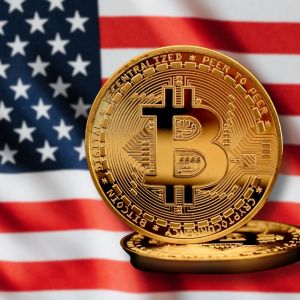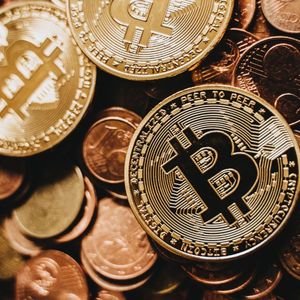As the debate over Bitcoin’s role in global finance intensifies, questions emerge on whether the United States would adopt it as a strategic asset. Others believe that Bitcoin will eventually replace traditional reserve systems, but according to Ki Young Ju, the U.S. is far from embracing such a shift given its economic dominance and reliance on the dollar. Recently, the idea of the United States adopting Bitcoin as a strategic asset has come forward, but not everybody agrees that it will happen soon. CryptoQuant CEO Ki Young Ju joined the discussion on the U.S. introducing Bitcoin into its financial plan. Ju said gold has often been presented as a solution whenever the United States felt threatened by a loss of global economic dominance. The gold price has risen as uncertainty has surrounded the U.S. economy, and the debate about going back to the gold standard never really subsided. In the 1990s, Peter Schiff argued that gold is the “true form of money,” and today, Bitcoin advocates claim that Bitcoin can replace all other forms of money. These advocates see Bitcoin as a way to achieve financial freedom and global economic stability. Despite some calls to bring back the gold standard, no effort has succeeded in doing so in the United States. Instead, the U.S. has always found other ways to handle crises and keep growing. Bitcoin is taking the place gold once held in people’s minds. According to Ki Young Ju, the future of finance is unlikely to see Bitcoin as an important player in the immediate future, though it may one day become a strategic asset for the U.S. In other words, serious consideration by the U.S. as a reserve asset will depend on a real threat to its global economic supremacy. U.S. dollar’s dominance in global trade Despite the changing global economy, the U.S. stands strong, and the dollar remains the first choice of international trade. Though, at the same time, it is possible that the U.S. may be using Bitcoin as a sort of backup for the dollar or to gain economic benefit, Ju points out that the reasons behind such a step would likely be very far from what Bitcoin supporters could imagine. Ju’s skepticism towards the U.S. adopting Bitcoin as a strategic asset is mainly because the country still relies on the dollar. With capital flowing to the U.S. from anywhere worldwide, money is still pouring into dollar accounts. This is even as Bitcoin and other so-called cryptocurrencies rise to unparalleled heights, and many folks see the dollar as at least a better store of value than all of that stuff. Examples are countries such as South Korea, which for years have been opting to store U.S. dollars instead of Bitcoin or gold as their currencies, the Korean won, continue to decline. This proves that at least the U.S. dollar will remain a reserve currency for the future. However, there are emerging voices across the U.S. calling for a course change in its monetary policy, and even President-elect Donald Trump has been quoted as supporting Bitcoin, with public statements made valuing the virtual currency during his presidential run. As Ju points out, things could change, especially with bigger policy issues ahead. The U.S. might still buy Bitcoin to strengthen its economy or manage risks. However, Ju believes it’s unlikely that the U.S. will treat Bitcoin as a core reserve asset, as some Bitcoin supporters hope. Instead, he would be far more concerned with the diversification of schemes rather than considering Bitcoin a core base of the financial systems of the government. Ju’s analysis holds true for the fact that most governments have yet to adopt Bitcoin. While nations like El Salvador and Bhutan have adopted Bitcoin within their respective economies, nations like Japan could not consider Bitcoin to be added as a national reserve. Instead, Japan has strengthened its economy by using more traditional approaches than risking its exploration with Bitcoin. This is because it cannot take a risk with the volatility of Bitcoin and the uncertainty it carries as to its long-term value as a stable asset. Companies lead Bitcoin adoption On the other hand, private companies have been much faster in adapting to the idea of Bitcoin in their financial strategy. Big firms such as MicroStrategy, MARA Holdings, and RIOT Platforms continue to buy Bitcoin steadily. These companies buy Bitcoin to hedge against inflation and to diversify their investments. These firms have steadily accumulated substantial Bitcoin holdings, reflecting a growing shift in how institutional investors perceive and value cryptocurrency as a key asset. Companies such as Metaplanet, for instance, recently bought more than 600 Bitcoin, adding to their reserves, now at almost 1,800 BTC. This is why more people in private firms may embrace it, but the U.S. government is more hesitant. The U.S. may look into a reserve of Bitcoin in the long run. Still, it will remain one of the assets that the individual investors and companies would hold onto rather than a vital component of the U.S. government’s financial plan. Though the surge in popularity and adoption of Bitcoin is undeniable, it appears that the U.S. will not immediately make Bitcoin a strategic asset. The dollar remains dominant and the U.S. holds a strong position in the global economy, making it hard to argue for an immediate shift towards Bitcoin as a reserve asset. However, as the maturing of the cryptocurrency market and more institutions and private firms invest in Bitcoin, the U.S. government might reassess its position. For now, Bitcoin is a niche asset and not a mainstream reserve currency for the U.S. A Step-By-Step System To Launching Your Web3 Career and Landing High-Paying Crypto Jobs in 90 Days.




















